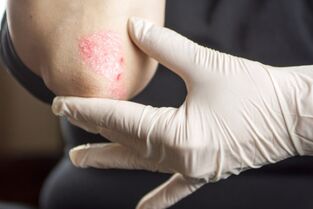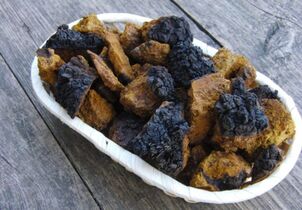Medications alone are not enough to cure psoriasis in different parts of the body. The greatest result will be given only by an integrated approach. Therefore, you need to know all the possible ways to treat a dermatological disease.
Principles of treating psoriasis
Before you start fighting psoriasis, you need to consider that it is incurable. The therapy aims to combat the symptoms, restore the body's protective functions and the ability to establish a lasting clinical remission.

Treatment principles consist of several areas:
- drug therapy;
- physiotherapy (used in combination with other forms of treatment);
- unconventional alternative treatment;
- traditional medicine.
When treating psoriasis, it is very important to consider the individual characteristics of each organism. What works effectively for one patient does not always work for another. Every patient diagnosed with psoriasis requires serious thoughtful treatment and special attention.
Drug therapy for psoriasis
External objects
Local preparations are used to eliminate inflammation, itching, swelling and other symptoms of psoriasis. These include:
- pomada; cream
- ; lotion
- ;
- spraying;
- xhel.
These tools should be used for mild to moderate forms of the disease. In severe forms, in most cases, such drugs are used in conjunction with other strong drugs. In this case, the doctor must determine the severity of the disease, take into account the individual intolerance of a particular drug. External remedies can be used in patients of any age.
In medical practice, oils and creams are widely used, which are divided into hormonal and hormone-free. It is better to use non-hormonal medications as they have no side effects. However, in some cases, such drugs are not able to defeat the disease. Then hormonal drugs should be used, which perform the following actions:
- are used intentionally, acting only on lesions;
- oils inhibit the development and spread of lesions;
- penetrate the deep layers of the epidermis;
- eliminate itching, flaking;
- relieves the symptoms of allergic reactions.
For treatment, glucocorticosteroid group drugs are also used, which have the following properties:
- removes the inflammatory process;
- eliminate itching and flaking;
- slow down the process of cell division.
Steroids can have strong and moderate effects. In severe forms of psoriasis, drugs with strong action are prescribed, in stages of mild course - milder drugs. Current corticosteroid treatments include:
- Hydrocortisone acetate. The ointment is applied to the skin surface in a thin layer. The course of treatment is 6 to 14 days. If this is not enough, the course is extended to three weeks.
- Acetonide and fluocinolone. Used for all stages of psoriasis. In case of mild and moderate severity of the course of the disease, it is used as the main medicine, in case of a severe form - as an adjunct.
- Ointment with prednisolone. The course of treatment is 2 weeks. Apply in an even layer only on inflamed areas, which are not recommended to be bandaged.
Despite the effectiveness of treatment with hormonal drugs, unfortunately, their use can cause side effects. They have a strong effect not only on the epidermis, which then loses color and becomes thinner, but when they are used, there is a risk of recurrence of the disease. When treated with hormones, a dependence on the drug develops, as a result of which other means can not help. Due to the duration of steroid use, muscle weakness, a drop in blood pressure and weight, and lack of appetite appear. Steroid medications are sold in pharmacies without a prescription and are not recommended for long-term use.
The pharmaceutical industry has a variety of hormone-free psoriasis treatments that are excellent at combating symptoms without harming the body.
All non-hormonal drugs are divided into several groups:
Indifferent ointments (they do not contain active ingredients).
Salicylic ointment. Has anti-inflammatory and antimicrobial action, softens the skin, accelerates the process of exfoliation of keratinized layers. The ointment contains salicylic acid, which quickly removes the affected areas. Ointment should be applied sparingly, as allergies may occur.
Zinc ointment. Antiseptic has a drying and protective effect, is able to relieve inflammation. The composition includes zinc oxide. It is undesirable to use the oil for more than 30 days, as a dependent effect may develop.
Zinc pyrite. The drug is based on zinc pyrithione, which copes well with the inflammatory process, has antimicrobial and antifungal effects.
- Tar ointments. Preparations include pine pitch and birch. These include antrasulfonic oils, antramine and Colloidin, which are able to relieve inflammation, restore damaged skin and have a disinfectant effect. Ointments containing tar should be started in small doses. If no allergic reactions occur, the dosage may be increased.
- Ointments that contain fat. These oils are considered the most effective among non-hormonal agents.
- Ointments containing vitamins. Retinol palmitate. Ointment with vitamin A. Has a healing effect, restores and normalizes metabolic processes in tissues. Calcipotriol with vitamin D, has an inhibitory effect on stratified epithelial cells (keratinocytes). Cannot be combined with salicylic acid oils.
- Products containing oil. Naphthalene ointment. The composition of the oil contains Naftalan oil - a substance with a very unpleasant odor, but with unique effects. Promotes rapid skin restoration, has antimicrobial, antipruritic and absorbent effect.
Oral drugs
One of the ways to alleviate the symptoms of the disease is to use the tablet form of medication. It is the tablets that are able to provide the body with the necessary ingredients. Pill treatment is much more effective than day medication. Tablet preparations can be prescribed only by a physician, taking into account the age and physiological characteristics of the patient. Psoriasis pills are divided into two groups:
- hormonal - the most effective tool, the use of which allows you to achieve positive results in a short time, but they can cause many side effects;
- non-hormonal - perform the function of complementing the action of essential drugs.
The onset of psoriasis is triggered by internal causes that are responsible for disrupting metabolic processes in the body.
Therefore, you should turn to stronger medications:
- Methotrexate. Tablets that can significantly slow down the process of cell division. Used for pustular and erythrodermic psoriasis. Widely used to treat psoriatic arthritis. However, there are many side effects.
- Meglumine sodium succinate. A new generation medicine with a wide spectrum of action. Used for severe psoriasis and available only by prescription.
Alternative treatments
Methods and approaches without medication are used as alternatives. Recommended:
- visit thermal springs;
- take a Garra Rufa fish skin course (ichthyotherapy);
- undergo healing mud sessions;
- hydrotherapy with fresh water;
- plasmapheresis;
- massage course.
However, these methods are only effective in combination with traditional treatment methods.
Physiotherapy for psoriasis
Physiotherapy is an important part of treating psoriasis. In the initial stage of the disease, physiotherapy can not be used. These methods begin to be used when the symptoms of the disease subside and they are performed in a hospital.
Physical methods of exposure include:
- UV radiation;
- puva therapy;
- ultrasound application;
- laser treatment;
- laser chemotherapy;
- magnetotherapy (application of a static magnetic field);
- exposure to cold (cryotherapy);
- electric drilling;
- X-ray therapy.
Diet therapy for psoriasis
Diet plays an important role in treating psoriasis. Therefore, it is necessary to know what food should be the patient's diet. Proper nutrition restores intestinal function, helps relieve painful symptoms, strengthens the immune system and protects the body from new recurrences.

List of products that have a negative effect on the condition of the skin and hair:
- Smoked and salty foods. The components contained in the products affect the functioning of the digestive tract, can adversely affect the condition of the epidermis.
- Citrus fruits. A large amount of essential oils are found in the colored rind (peel) of the fruit, therefore juices made by an industrial method adversely affect the patient's condition.
- Arra. They are a strong allergen.
- Fatty foods.
- Alcoholic beverages. They disrupt the work of the liver, which can not cope with the cleansing of the blood from toxic substances, which negatively affects the condition of the dermis.
- Chocolate and products containing cocoa are potent allergens.
- Products with a high color content.
The diet for psoriasis should contain:
- vegetables and fruits;
- cereals;
- dairy products;
- fish;
- chicken meat;
- greens.
Psoriasis requires drinking plenty of fluids. You should drink up to two liters a day.
Traditional medicine recipes for psoriasis
Effective treatment of psoriasis is possible through traditional medicine. May be household products for indoor use:
- decoctions and medicinal infusions; tablets and powders
- ;
- means with many ingredients.
Decoction of bay leaves. Effective at the first signs of psoriasis. Pour boiling water over the chopped bay leaves. Allow to cool and drain.
Chaga birch mushroom. The active ingredients contained in chaga recover the condition of the epidermis. Pour the mushroom (100 g) with hot water (1 l) overnight. In the morning, grind the mushrooms with a blender into a particle-like mixture in density. Bring the broth to 40 degrees, pour the chopped mushrooms. Insist for three days.

For external use are used:
- household ointments; shampoo
- ;
- collection of medicinal plants.
For a more effective treatment, vegetable oils should be applied to the affected areas of the body.
Propolis ointment. Grind 20 g of propolis and add 350 g of butter. Heat in a water bath. StrainApply to tile locations. Store in the refrigerator.
Birch bud ointment. Grind the birch buds (100 g). Mix with tar (180 g) and ash (50 g). Stir until smooth. Rub on the affected area, wrap with cling film.
Therapeutic baths at home are also beneficial for psoriasis. Mix the string and celandine (100 g each) and pour three liters of water. Melt the sea salt. Let it bake for an hour. Throw in warm bath water.
Blue clay can be used for treatment by combining it with sea salt. After taking such a bath, the skin becomes very soft.
Effective remedies for treatment
Treatment of psoriasis of the elbows should be performed in a complex, which includes the following:
- taking vitamins;
- diet;
- external treatment;
- physiotherapy;
- phototherapy.
Local medicines (oils, creams) are used to treat a knee disease. Perhaps the appointment of sedatives and antihistamines for complex treatment. With profuse bleeding, anti-inflammatory drugs are prescribed.
Treating psoriasis on the palms and soles is quite problematic. This is mainly caused by the constant irritation of these parts as a result of rubbing with clothes and frequent washing. If treatment with external agents does not give a positive result, then ultraviolet radiation is prescribed.

Treatment of psoriasis during remission
Once the remission period has begun, all recommendations should be followed in order to maintain this condition and prevent recurrence of the disease. To prevent psoriasis from becoming felt on its own for a long time, you should consider that:
- You can not stop the course of treatment, but continue to take the prescribed medication.
- Do not use new medicines other than those prescribed.
- it is necessary to eliminate the symptoms of infectious diseases in time.
- When forgiving, try not to damage the skin.
- Avoid nerve breakdowns.
- Do not overuse the sun bath.
- Avoid contact with chemicals.
- Try to wear only natural materials.
- Observe skin care.
During this period, all recommended methods and tools should be applied to prevent further progression of the disease.























